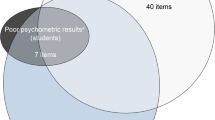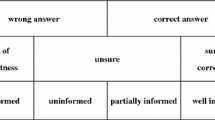Summary
The three Royal Colleges of Physicians of the United Kingdom first awarded the Diploma in Pharmaceutical Medicine in November 1976. After 25 years, its introduction and evolution is documented. The Diploma examination has been conducted by a Board of Examiners chosen from senior physicians working in pharmaceutical companies, regulatory authorities, universities and hospitals, who together bring experience of pharmaceutical medicine and of related specialities, such as clinical pharmacology and toxicology. An important contribution from the beginning was the ongoing experience of some examiners in other postgraduate examinations.
In 1994, the Diploma examination and the Board of Examiners were transferred to the Faculty of Pharmaceutical Medicine, formed 5 years before in the three Royal Colleges. Obtaining the Diploma now allowed candidates to become Associates of the Faculty. It will remain the exit examination for the basic part of the new Higher Medical Training programme that will lead to pharmaceutical physicians achieving specialist grading.
The Diploma examination has always comprised a written section and an oral section. There were, and remain, three written parts, but these have gradually changed over the 25 years. Although essays and short answers are retained, in the past decade multiple-choice questions were introduced. The adjudication process has been modified in the way borderline candidates are dealt with. The number of candidates sitting the annual examination has risen from less than 20 on average to about 50, and the pass rate has generally fluctuated around 70% in recent years with a downward trend over time that may be related to the changes to the curriculum and the examination itself. A total of 699 candidates mainly from the UK and other European countries have sat the examination over the past 25 years and 518 (74%) of them obtained the Diploma.

Similar content being viewed by others
References
Luscombe D, Salek MS. An International Postgraduate Course in Pharmaceutical Medicine: a review of 25 years. Int J Pharm Med 2001; 15:261–263.
Smith RN. A short history of the Board of Examiners. Int J Pharm 2000; 14:283–290.
Binns TB. A diploma in pharmaceutical medicine. Scot Med J 1976; 21:163.
Goldberg A, Smith RN. Pharmaceutical medicine. Lancet 1985; i:447–448.
Burley DM, Binns TB eds. Pharmaceutical medicine. London: Edward Arnold, 1985.
Handbook. Faculty of Pharmaceutical Medicine.
Shelley JH. Changes to the Regulations for the Diploma in Pharmaceutical Medicine. Pharm Med 1991; 5:81–86.
Griffin JP, O’Grady J, Wells FO, D’Arcy PF eds. The textbook of pharmaceutical medicine. Belfast: The Queen’s University, 1993.
Shelley JH. Relationships between physicians and the pharmaceutical industry: London Royal College of Physicians. Br J Clin Pharmacol 1987; 23:257–258.
Acknowledgments
We would like to express our gratitude to the many people who contributed to and facilitated the Diploma examination. First, we want to mention the examiners who were not only involved in the examination itself, but also prepared and reviewed the banks of questions over the year. Their voluntary work was the foundation of the Diploma. Others became officers of the Board, and they and other examiners served on the Board’s working parties and on other committees in the Colleges and the Faculty. Second, the officers of the parent Colleges and later of the Faculty gave valuable advice and support, and their administrators dealt with all the arrangements and looked after the accounts. We also had kind hospitality when the examination rotated around the three Royal Colleges. Third, those who supervised and taught the candidates are owed a debt of gratitude by the examiners as well as the candidates. We would especially thank those in the School of Pharmacy in the University of Wales who have run the Postgraduate Course throughout the history of the Diploma. The liaison with the Board and with other bodies, such as the AMAPI now the BrAPP, the ABPI and the Faculty, has been a highly constructive partnership. Finally, we thank all the candidates, who worked hard, were courteous and made it all worthwhile. We wish them every success in their careers.
Author information
Authors and Affiliations
Rights and permissions
About this article
Cite this article
Goldberg, A., Shelley, J.H. & Smith, R.N. Examination for the Diploma in Pharmaceutical Medicine: a review of 25 years. International Journal of Pharmaceutical Medicine 15, 265–269 (2001). https://doi.org/10.2165/00124363-200112000-00003
Published:
Issue Date:
DOI: https://doi.org/10.2165/00124363-200112000-00003




